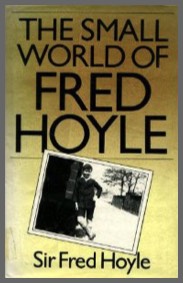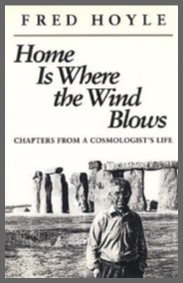PRIVACY POLICY
Hoyle Productions Ltd is committed to protecting and respecting your privacy
This policy sets out the basis on which any personal information we collect about you, or that you provide to us, on this website will be used.
USE OF PERSONAL INFORMATION
We use information about you in the following ways: To respond to your comments and queries and to ensure that content from the Site is presented to you in the most effective manner.
COOKIES
“Cookies” (also known as HTTP cookies, web cookies or browser cookies) are simply small pieces of data, which are stored as text files on your computer, whenever you visit our website. Their purpose is to help our site remember particular actions you may have done there in the past. For example, cookies may track, when you have logged into the site, visited certain pages or clicked certain buttons. This improves your user experience. In many cases, cookies are even essential for certain features of a site. We may also use Google Analytics© to track your usage of the site. If you do not wish to have Google Analytics© place cookies on your browser you can download a Google Analytics Opt-out Browser Add-on at https://tools.google.com/dlpage/gaoptout
_utma Lasts 2 years from set/update It is used to distinguish users and sessions. The cookie is created when the javascript library executes and no existing __utma cookies exists. The cookie is updated every time data is sent to Google Analytics.
_utmb Lasts 30 mins from set/update It is used to determine new sessions/visits. The cookie is created when the javascript library executes and no existing __utmb cookies exists. The cookie is updated every time data is sent to Google Analytics.
_utmc Lasts until the end of the browser session Not used in ga.js. Set for interoperability with urchin.js. Historically, this cookie operated in conjunction with the _utmb cookie to determine whether the user was in a new session/visit
_utmz Lasts for 6 months from set/update It stores the traffic source or campaign that explains how the user reached your site. The cookie is created when the javascript library executes and is updated every time data is sent to Google Analytics.
_utmv Lasts for 2 years from set/update Used to store visitor-level custom variable data. This cookie is created when a developer uses the _setCustomVar method with a visitor level custom variable. This cookie was also used for the deprecated _setVar method. The cookie is updated every time data is sent to Google Analytics.
ARE COOKIES HARMFUL?
Cookies cannot harm you or your computer. They cannot contain viruses, cannot install harmful software and cannot damage your computer in any way. We do not use cookies to store any sensitive information, such as name, address or contact details.
Despite this, if you do wish to disable or remove cookies, please see the “Help” section of your browser or mobile device. Each browser or device handles the management of cookies differently, so you will need to refer to your appropriate “Help” documentation. However, as mentioned, please be aware that cookies are essential for certain features of websites to work properly.
For more information about cookies, please visit http://www.allaboutcookies.org.uk or refer to the documentation provided with your web browser software.
WHY ARE WE TELLING YOU THIS?
The information provided here on the use of cookies demonstrates our compliance with recent cookie legislation. We also want you to fully understand your privacy, how cookies affect you and to be entirely comfortable with your visit to this website.
We hope that this information eases any concerns you may have had about your privacy and safety with cookies. BY CONTINUING TO USE OUR WEBSITE, YOU AGREE TO BE SUBJECT TO THE TERMS OF THIS COOKIES POLICY AND OUR USE OF COOKIES AS DISCLOSED IN THIS POLICY.
INTERNET SECURITY
We take the security of personal data seriously.
We use uk2net( www.uk2.net ) for our web hosting. Their servers are housed in a secure environment with high levels of physical security.
To help safeguard your privacy, there are a number of things you can do to protect yourself from Internet fraud. Choose a password you can remember but others cannot guess. Changing it regularly, and if you do write it down, keep it somewhere safe and secure.
You might also consider logging off when you finish a session on a secure Site. Clear your browser's ‘caches’ manually or have it done automatically by your browser when you log off. Try not to leave a trail of activities on your computer that others might use to steal your identity.
THIRD PARTY WEBSITES
Third party Internet sites that you can link to through our website are not covered by this policy and Hoyle Productions Ltd accepts no responsibility or liability for the security of these websites.
GENERAL
Hoyle Productions Ltd is contactable via post at Hoyle Productions Ltd, 42a, Wimpole Road, Great Eversden, Cambridge, CB23 1HR, UK or by email at info@hoyle.org.uk.
We keep our privacy policy under regular review and we will place any future updates on this webpage. This policy was last updated on September 2015.

